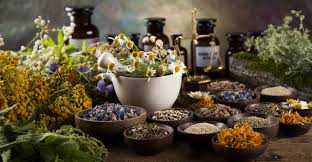
Breaking News
 It's All Starting To Make Sense
It's All Starting To Make Sense
 Trump to wipe out "Endangerment Finding" and pardon CO2 in largest act of deregulation...
Trump to wipe out "Endangerment Finding" and pardon CO2 in largest act of deregulation...
 Highest Delinquency Rate Since 2017, Having Trouble Paying Bills?
Highest Delinquency Rate Since 2017, Having Trouble Paying Bills?
 The Politics of Hate: Weaponized Discord Is the Deep State's Most Effective Tool
The Politics of Hate: Weaponized Discord Is the Deep State's Most Effective Tool
Top Tech News
 Drone-launching underwater drone hitches a ride on ship and sub hulls
Drone-launching underwater drone hitches a ride on ship and sub hulls
 Humanoid Robots Get "Brains" As Dual-Use Fears Mount
Humanoid Robots Get "Brains" As Dual-Use Fears Mount
 SpaceX Authorized to Increase High Speed Internet Download Speeds 5X Through 2026
SpaceX Authorized to Increase High Speed Internet Download Speeds 5X Through 2026
 Space AI is the Key to the Technological Singularity
Space AI is the Key to the Technological Singularity
 Velocitor X-1 eVTOL could be beating the traffic in just a year
Velocitor X-1 eVTOL could be beating the traffic in just a year
 Starlink smasher? China claims world's best high-powered microwave weapon
Starlink smasher? China claims world's best high-powered microwave weapon
 Wood scraps turn 'useless' desert sand into concrete
Wood scraps turn 'useless' desert sand into concrete
 Let's Do a Detailed Review of Zorin -- Is This Good for Ex-Windows Users?
Let's Do a Detailed Review of Zorin -- Is This Good for Ex-Windows Users?
 The World's First Sodium-Ion Battery EV Is A Winter Range Monster
The World's First Sodium-Ion Battery EV Is A Winter Range Monster
 China's CATL 5C Battery Breakthrough will Make Most Combustion Engine Vehicles OBSOLETE
China's CATL 5C Battery Breakthrough will Make Most Combustion Engine Vehicles OBSOLETE
Ancient botanicals meet modern science: Essential oils as natural anti-aging allies

Herbalist Erica Kuo, in her latest recommendations, champions essential oils like cistus, myrrh and rose as potent allies for restoring skin elasticity and radiance. Supported by recent studies, these oils target collagen breakdown, free radicals and moisture loss — key culprits behind aging skin. Though not a cure-all, they offer a gentle, holistic approach that aligns with a trend toward natural wellness.
In the news: Five essential oils poised to transform anti-aging routines
According to a 2022 study, cistus oil combats wrinkles by neutralizing free radicals and reducing inflammation, which accelerates collagen degradation. Myrrh, prized for millennia in traditional medicine, stimulates tissue regeneration, while carrot seed oil, rich in carotenoids, shields against UV damage and triggers collagen production. Kuo emphasizes its value for post-menopausal skin: "Rose oil isn't just about beauty — it's biochemically active, addressing hormone-driven skin changes and menopause-related dryness."
The oils, when diluted with carrier oils like jojoba or sandalwood, form serums that smooth fine lines and enhance hydration. Kuo notes, "Geranium oil balances sebum production, offering a natural solution to aging skin's moisture imbalance."
From ancient medicines to clinical backing
Essential oils have been used for millennia. Egyptians infused myrrh in embalming rituals, while rose oil was a prized commodity along Silk Road trade routes. Modern science is now verifying their merits. A 2024 trial revealed that helichrysum — long a European folk remedy — reduced wrinkle counts and sun spots in 85 percent of participants over 12 weeks. The revival of these ancient remedies comes at a time when consumers demand transparency and human-centric solutions amid concerns over synthetic skincare ingredients.
Key ingredients and science: How these oils work
Cistus (Rock rose): Antioxidants combat oxidative stress; anti-inflammatory properties soothe irritation.
Myrrh: Boosts tissue repair, mitigating fine lines and uneven texture.
Carrot seed: Vitamin A and antioxidants defend against sun damage; carotenoids may inhibit collagen breakdown.
Rose: Enhances elasticity and regulates oil glands; anti-inflammatory effects reduce redness.
Geranium and sandalwood: Synergistically hydrate, with sandalwood's emollients firming skin.
A 2025 dermatology review highlighted that rosemary oil's rosmarinic acid protects skin lipids, while its anti-inflammatory properties help stave off photodamage.



